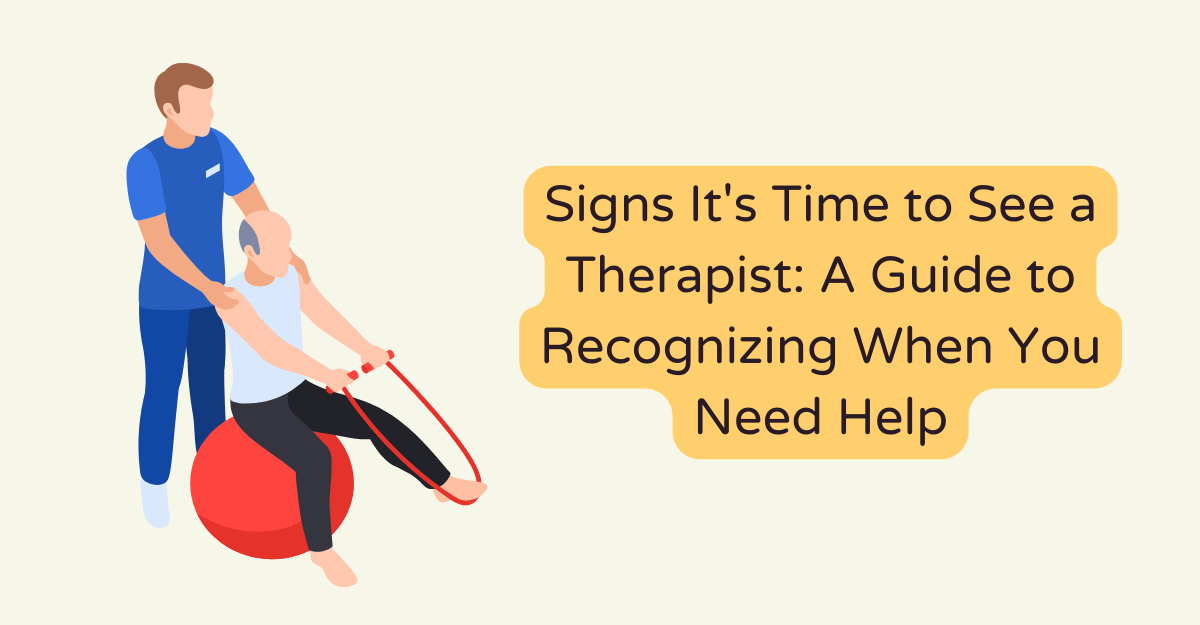
Mental health is essential to our well-being, but identifying the signals indicating the need for professional help can be difficult. Therapy is a vital tool for helping people get through difficult circumstances. Yet, many hesitate to seek help due to stigma or uncertainty about the signs that indicate it’s time to see a therapist. This guide will explore critical indicators that suggest reaching out for help is beneficial.
Overwhelming Feelings of Sadness or Despair
If you find yourself engulfed by sadness or despair over a prolonged period, it could be a sign that you must talk to therapists Seattle. While everyone experiences periods of sadness, prolonged feelings of emptiness or hopelessness could indicate depression. A therapist can collaborate with you to identify the underlying issues and create healing-promoting coping mechanisms.
Excessive Worrying or Anxiety
Another red flag is if you’re experiencing persistent worry or anxiety, particularly if these feelings are interfering with daily activities. When the amount of worry is disproportionate to the situation or is difficult to control, it could point to an anxiety disorder. Therapy provides a space to learn and practice techniques to manage anxiety more effectively.
Significant Changes in Sleeping or Eating Habits
Sleep and appetite are often good indicators of mental health. Noticeable changes, such as insomnia, oversleeping, or drastic changes in appetite, can signify psychological distress. A therapist can help identify if these are symptoms of a larger issue and work toward solutions that help establish healthier routines.
Social Withdrawal
If you find yourself pulling away from friendships or activities that you once enjoyed, consider why this might be happening. Speaking with a therapist might help you resolve the issue and figure out how to make connections again. Feeling alone and disconnected can be indicators of depression or anxiety.
Uncontrollable Emotions
Emotions are a natural part of human experience. Still, if your emotional responses are extreme or unpredictable, it might be a sign that it’s time to seek professional help. Outbursts of anger, overwhelming fear, or uncontrollable crying often indicate something deeper needs addressing.
Using Substances as a Coping Mechanism
In times of stress or emotional turmoil, some may turn to alcohol, drugs, or other harmful behaviors as a way to escape. If substance abuse or other compulsive behaviors become a regular coping method, it’s critical to seek help from a mental health expert.
Traumatic Experiences
The aftermath of a traumatic event might have long-term psychological effects. If you have experienced trauma and find it difficult to move past the event, therapy can be an effective way to process these experiences and work towards healing.
Chronic Physical Symptoms
Often, our mental state can manifest through physical symptoms. Chronic pain, frequent headaches, or stomach issues without a clear medical cause could signal underlying mental health issues, and a therapist can help you explore the mind-body connection and identify treatment options.
Difficult Life Transitions
Whether welcome or not, life transitions can be sources of significant stress and test our ability to cope, events such as a job loss, a move, the end of a relationship, or the death of a loved one are significant changes that can benefit from the support a therapist offers.
Mental Health’s Impact on Daily Functioning
When your mental health begins to impact your daily functioning significantly – whether it’s at work, school, or in personal relationships – it’s often a clear indication that it’s time to see a therapist. When the quality of your life and your ability to meet daily responsibilities suffer, clinical support can help you navigate the barriers you face.
Feeling Stuck or Without Direction
If you’re stuck in a rut, unable to make decisions, or unsure about your life’s direction, therapy can provide the tools to help you discover your path and set meaningful goals.
Conclusion
Recognizing the signs that it might be time to see a therapist is the first step toward taking control of your mental health and well-being. Remember that seeking treatment is a show of strength, not weakness, and it may start a life-changing path to a better, happier you. If you identify with any of these signs, consider reaching out for professional help – it could be the most crucial step you take for yourself.